SIS alumna is on a mission to preserve music history in Detroit
“If you want something done right, do it yourself,” or so the saying goes. School of Information Sciences alumna Michelle Jahra McKinney took that adage to heart when attempting to preserve the music collection of her late husband, the renowned local jazz master and educator Harold McKinney.
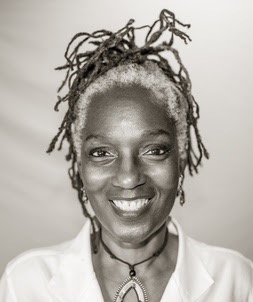
Harold, a pianist who played with jazz greats including Charlie Parker, Miles Davis and John Coltrane, left behind a treasure trove of studio recordings when he died of a stroke in 2001. Shortly after he passed away, McKinney was devastated to discover that the basement in which the recordings were stored had flooded and the tapes were completely submerged in water.
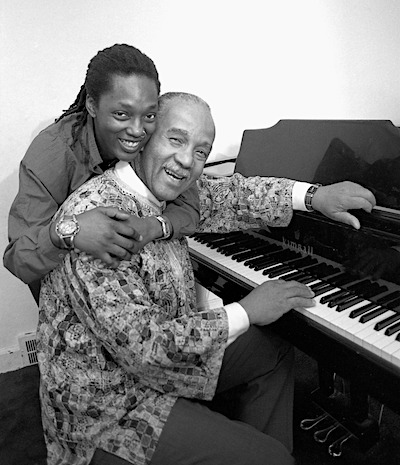
McKinney acted fast, dragging the boxes one by one out into the sun to dry. She didn’t know anything about archives at the time, but she contacted several local historical institutions to see if they would be able to restore and preserve the boxes and boxes of reel-to-reel tapes. She was told that the institutions weren’t set up to handle that type of collection and the funding for such a project was simply not available.
After years of languishing in a storage facility and surviving yet another flood, McKinney came to a conclusion: “I’m going to learn to do this my damn self!”
McKinney began working at Detroit’s Charles H. Wright Museum of African American History where she processed archival collections and produced educational outreach programs. The museum paid for her to take one course at Wayne State’s School of Information Sciences (SIS).
“I was a Catholic schoolgirl from Detroit. Being in that tough system with the nuns and their long rulers – I got a good foundation for studying and reading and writing,” McKinney said. “I carried that over to Wayne State’s School of Information Sciences and the Library System. That is where I learned to READ. I love books, so librarianship called me.”
McKinney continued paying for courses on her own and completed the program in 2011 with a Master’s in Library and Information Science and a graduate certificate in Archival Administration. She went back to the Wright Museum where she has worked for the past 15 years as an education specialist, archivist and librarian.
While working at the Wright Museum, McKinney met Carleton Gholz, a high school history teacher who worked as a freelance writer, covering the local music scene for Detroit-based alt-weekly Metro Times.
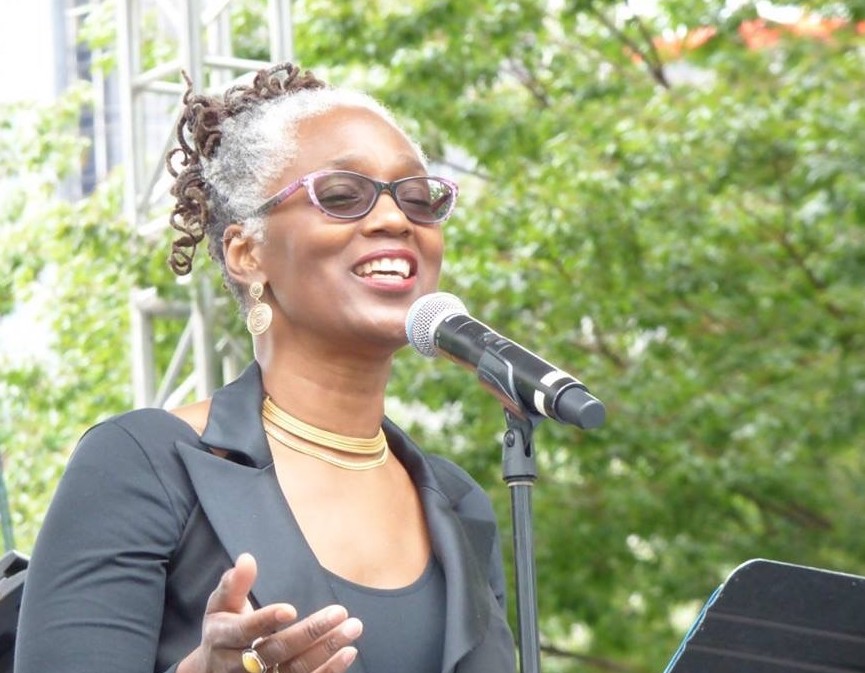
McKinney told Gholz the story about her husband’s tapes and they discovered that they not only shared an interest in preserving the audio heritage of Detroit, but that they both also wanted to do something about the gaping hole in the repository scene in the city.
“To really know a city, you have to listen to it,” Gholz said. “There’s no ignoring in Detroit and in Michigan, the progressive role archives and collections have played in telling a dynamic American story.”
In order to preserve the city’s creative voices, musical recordings and cultural spaces, Gholz established Detroit Sound Conservancy (DSC) in 2012. The nonprofit organization, made up of musicians, archivists, media makers, academic musicologists and historians, “creates programs and provides leadership in the preservation of musical heritage in a spirit of partnership and celebration.”
McKinney has been part of DSC from the beginning. She was a member of the organization’s advisory committee and later became a board member and then vice president. She was named executive director in late 2020.
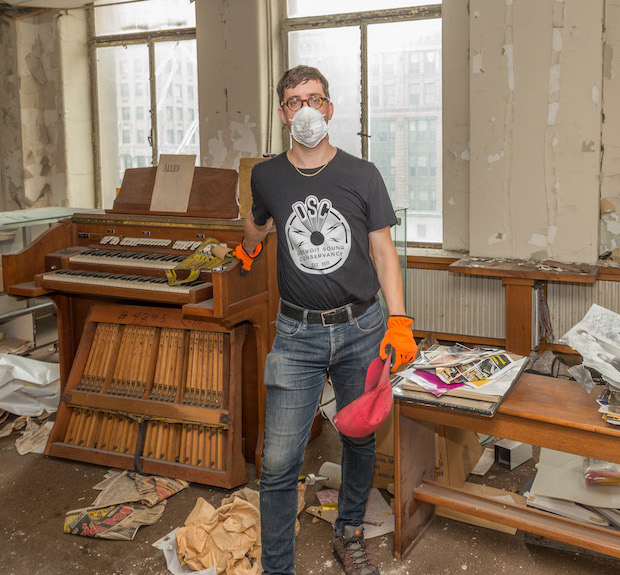
Community partnerships are at the core of DSC’s mission. “We are proud to work with Detroit Sound Conservancy as a community partner,” said Tom Walker, associate dean of Wayne State’s School of Information Sciences. “Over the last several years, the partnership has provided many mutually beneficial and meaningful opportunities for our students.”
Gholz says Wayne State is ideally situated for the work of community archivists. “Detroit really is an archival mecca of sorts,” he said. “A place where, starting at Wayne State, you can hit eight different institutions in just a short distance. We’re very lucky.”
Kim Schroeder, a DSC advisory board member and coordinator of the Archival Administration Certificate Program at SIS, worked with Gholz to create an internship program in which some DSC collections would be housed at Wayne State so students would gain hands-on experience in processing the archival materials.
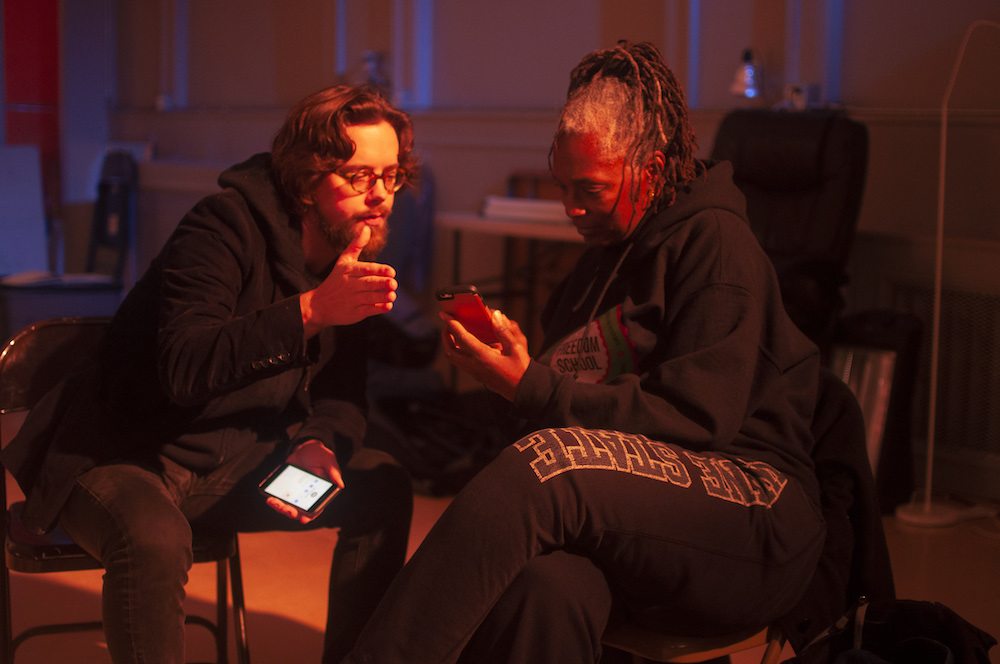
“This partnership really gives students the opportunity to ask the ‘why’ of archiving,” Gholz said. “What is the value? What are the stakes of doing community engaged archival work? When it comes to community materials, in this case Detroit music, there is an ethical dimension in which we become responsible for answering those questions and telling the stories of often underrepresented groups of people.”
McKinney has established a practicum opportunity at the Wright Museum for SIS archival students as well. A practicum must be completed for students to receive a certificate in Archival Administration. It was when she completed her own practicum as a student that McKinney experienced first-hand the systemic racism that exists within the profession.

“I had a wakeup call with my practicum,” McKinney said. “People don’t realize they have bias. Also, I was the only Black person in most of my classes. Only toward the end of my degree did I realize there were other people of color involved. The field desperately needs Black librarians and archivists.”
That fact was in large part the reason Gholz decided to step down as director of DSC in late 2020. He felt that it was time to shift the leadership of the organization to someone who not only worked in the community but was of the community.
“With everything the city has gone through, there is not only a need to tell stories of struggle and justice and creative energy, there is also a demand for it,” said Gholz. “That’s why Michelle taking on this role is so important. She is African American, she is from the city, she has those community relationships, and that trust within the community.”
Under McKinney’s leadership, DSC was awarded a $100,000 grant for Community-Based Archives from the Andrew W. Mellon Foundation. The grant will provide funding for three largely hidden audio collections, the Graystone International Jazz Museum and Hall of Fame, United Sound Systems Recording Studios, and Club Heaven Sound System.
“Carleton and Jonah (Jonah Raduns-Silverstein, DSC Director of Operations) really laid the groundwork to get this grant. The funding will help us get to the next level. It’s a thrilling ride,” McKinney said. “These three collections bridge a great swath of genres of Detroit music. It will be very exciting to have those collections processed and archived. I’m very excited for the future.”
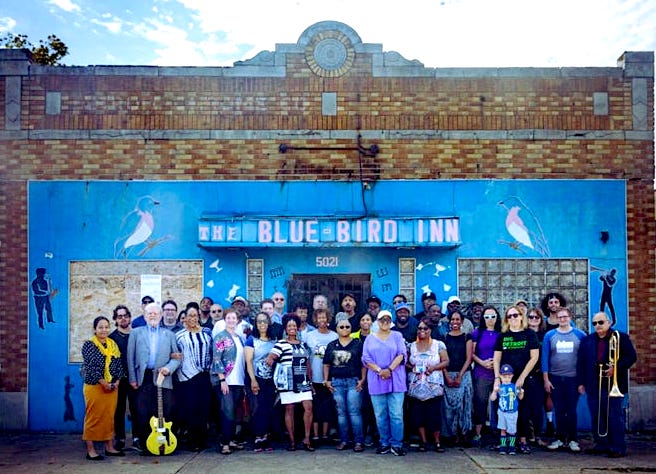
DSC scored another major win at the end of 2020 when the historic Blue Bird Inn, which the nonprofit purchased in 2019 with a grant from the Kresge Foundation, avoided demolition by becoming designated as a Historic District by the city of Detroit. According to DSC, the Blue Bird Inn was an institute for musicians who would influence global modern music and a hearth of freedom for the Black community within a deeply racist and heavily segregated post-Depression and post-WWII Detroit. DSC hopes to restore the Blue Bird to its former glory.
There is much to be excited for in the future, but McKinney has never lost sight of the project from her past that started it all. Her future includes plans to close the chapter on her husband’s tapes and have them properly processed and archived once and for all. She has applied for grants to help fund the project, but she’s also saved her money just in case. She plans to eventually donate the collection to DSC.
“I’m determined to restore this man’s music,” McKinney said. “That personal experience – realizing that there is a hole that needs to be filled – that gives me my passion within the organization.”

Detroit Sound Conservancy members are working to create their new home at the Blue Bird Inn and recently launched the “Raise the Roof” campaign. Replacing the roof of the building is the first step in their mission to establish an archive, museum, office, community space and performance venue at the historic site. Find out how you can support Detroit Sound Conservancy at detroitsound.org/give/roof/.